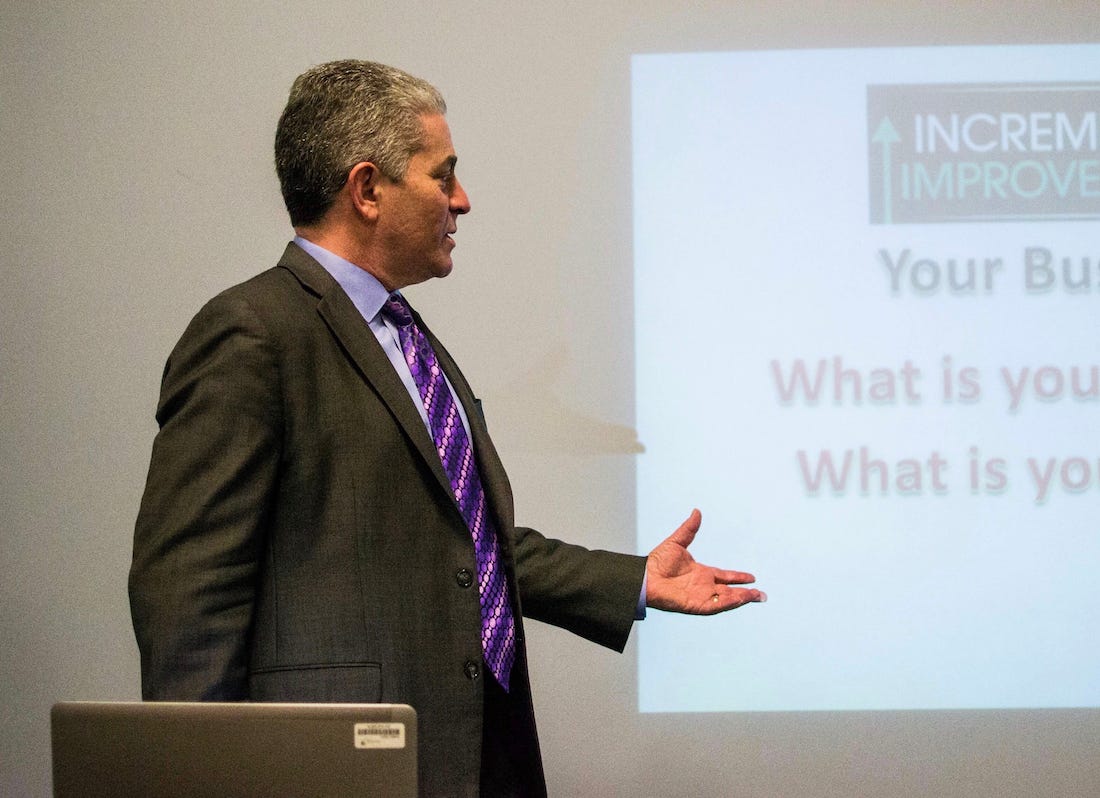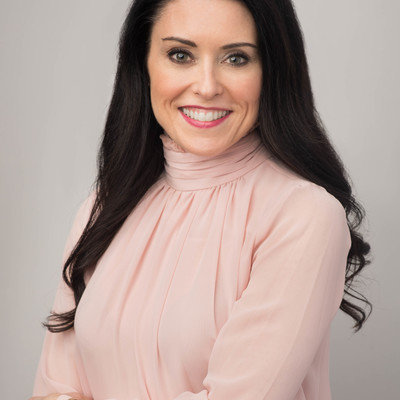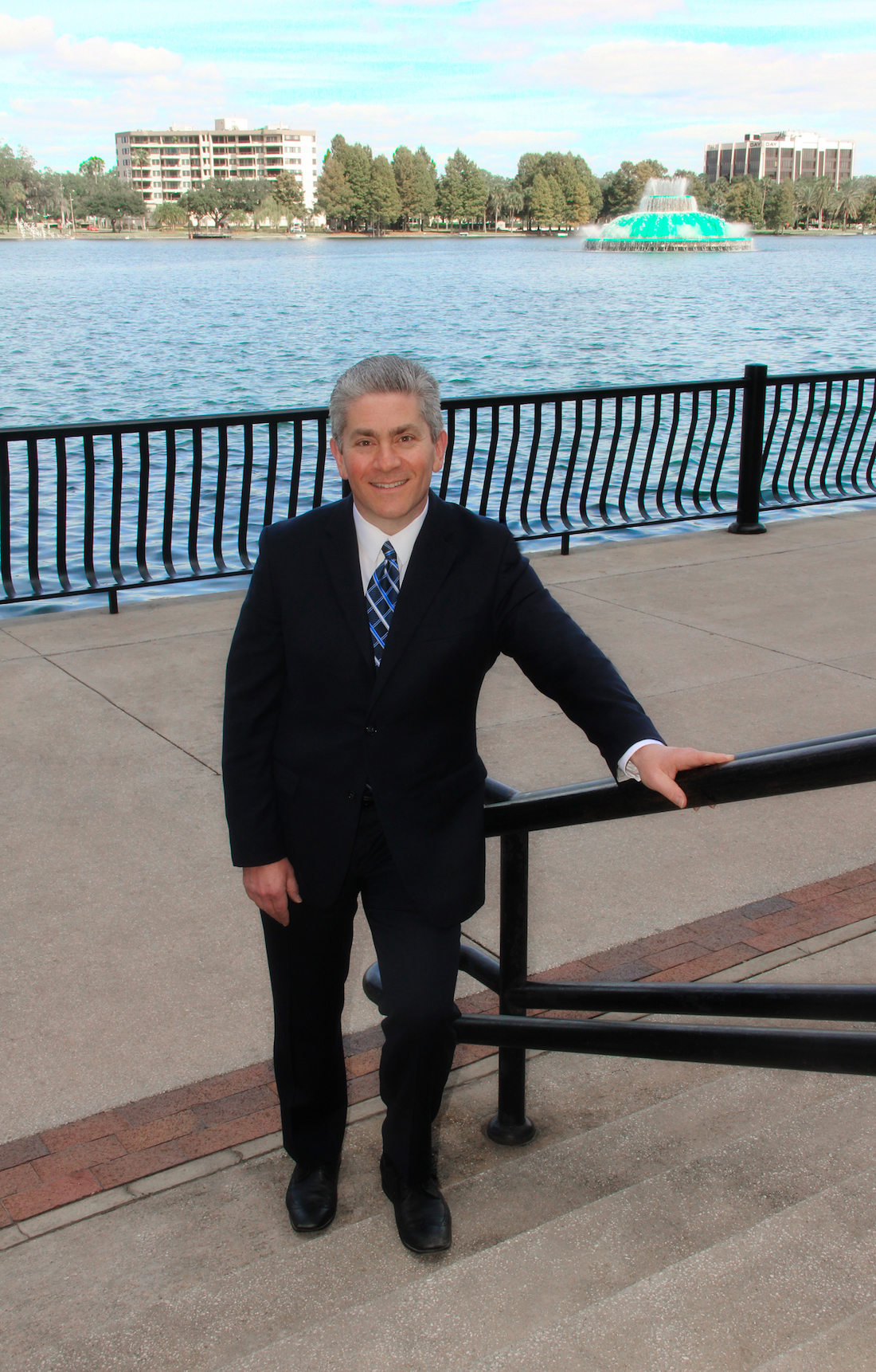Write what you know. I was able to take life lessons learned from my career and my own experiences and put them all together in my book. What unique experiences have you had that you can share with others?
Aspart of my series about “How to write a book that sparks a movement” I had the great pleasure of interviewingMike Brodsky.
Mike Brodsky is the author of the book, Incremental Improvements: Change Your Life One Small Step At A Time. He has worked as a Financial Advisor since 1997. He has also previously worked as a television news producer with the NBC affiliate in West Palm Beach, and as a producer for America’s Health Network. Mike graduated with an Economics degree from Yale and an M.B.A. from Duke, and is currently the President of the Yale Alumni Association of Central Florida and the All-Ivy Club of Central Florida. He is the Treasurer of The Mustard Seed of Central Florida, and is a member of the Board of Directors for the Jewish Chamber of Commerce and the Business Board of Directors for World Sports Alumni. He has previously served as a board member for the JCC of Greater Orlando, Distinguished Young Women of Florida, the Center for Memory Disorders, and the Orlando International Fringe Festival. Mike is frequently asked to speak to various groups on a variety of subjects.
Thank you so much for joining us! Can you share the “backstory” about how you grew up?
Growing up, I was fortunate to have been surrounded by some amazing mentors in the form of my teachers and professors, my classmates, my family, my friends, my colleagues and co-workers. Everywhere I went, I was always seeking knowledge and wisdom, absorbing it like a sponge. I am appreciative of all the lessons I’ve learned from others, which have helped me to make improvements in my own life. As a Financial Advisor, I quickly realized that when I spoke to groups of people, including clients and others, I was often being asked questions not just about money and investing, but about various aspects of their lives. I recognized that I could have an impact by sharing wisdom and advice to help others to make improvements in their own lives.
When you were younger, was there a book that you read that inspired you to take action or changed your life?
The books The Only Investment Guide You’ll Ever Needby Andrew Tobias and A Random Walk Down Wall Streetby Burton Malkiel definitely helped influence my interest in investing and the markets. But I’ve always enjoyed reading various self-help and self-improvement books, as well as books on business. These are the books that convinced me to change from a “Pre-Med” path to majoring in Economics.
What was the moment or series of events that made you decide to bring your message to the greater world?
I was speaking to a group of employees at my first 401(k) enrollment meeting, expecting to field questions from them about how to invest, or plan for their financial futures. But what I found was that people were asking me questions about their careers, or networking, or their diet, or their relationships. This trend continued, and I recognized people saw me as a “Life Advisor,” rather than just as a “Financial Advisor.” As I began to craft my message for the audience, I recognized that many of the principles that apply to personal financial planning can be applied to other aspects of people’s lives. The “incremental improvements” concept was useful in getting folks to actually make changes to their lives that would stick.
What impact did you hope to make when you wrote this book?
I wanted to help people. I was hoping the book would get my message out to more people than I’d be able to reach without it. While I certainly enjoy delivering this message to various groups in my speaking engagements, the book allows me to convey larger amounts of information to a wider audience, including people in other parts of the country and the world.

Did the actual results align with your expectations?
I would say the results were in line with what I had expected. In speaking with other authors and literary agents, I was able to get a good sense of the realities of the world of publishing. Some people who have not fully investigated this subject might have unrealistic expectations, thinking that writing a book will lead to huge sales and massive revenues. But it’s not that simple, as best selling books are rare, and actual sales are probably less than many people would expect. My book has reached #2 on Amazon’s Personal Transformation list, but I’m still not going to quit my “day job.” Nonetheless, having a book does allow me to differentiate myself from other Financial Advisors, and does allow me to market myself in a different way.
What moment let you know that your book had started a movement?
Shortly after my book came out, many friends (and strangers) started to reach out to share examples of how the book inspired them to take steps to make changes in their lives. I heard stories about how some had lost weight, or started fitness programs. Others went back to college, or began graduate studies, while others were inspired to seek new jobs. Some got out of abusive relationships, while others “fired” their most difficult clients. I’m still hearing new stories all the time, and it’s really heartwarming to think that my book has had an impact on so many lives.
What kinds of things did you hear right away from readers? What are the most frequent things you hear from readers about your book now? Are they the same? Different?
What’s interesting to me is how everyone seems to take away a message that is relevant to each of them. While many folks tell me about changes they’ve made to their lives, it definitely runs the gamut, including changes to their diet, exercise, finances, career, etc. The great thing about my book is that the basic premise can be applied in many different ways, so it’s really up to each reader to decide how best to apply the principles and strategies suggested in the book.
What is the most moving or fulfilling experience you’ve had as a result of writing this book?
One reader told me she was inspired to overcome her fear of flying in order to take a trip overseas, which she later described as “epic.” But besides all of the wonderful and inspiring stories I’ve heard from readers, I have really appreciated how many people I’ve been able to meet and connect with because of my book. It’s really been an incredible experience for me.
Have you experienced anything negative? Do you feel there are drawbacks to writing a book that starts such colossal conversation and change?
In reading some of the reviews both on Amazon and Goodreads, occasionally a reader will point out how simplistic or obvious the strategy is. It’s worth noting that I certainly didn’t invent the strategy of “Incremental Improvements.” The same basic strategy is also known as “Kaizen,” “Baby Steps, “Small Steps,” or “Marginal Improvements,” just to name a few. Other authors should take note that their books may also find a variety of opinions, as it’s impossible to please everyone. But the results speak for themselves, and I’m certainly pleased to have had a positive impact on so many people.
Can you articulate why you think books in particular have the power to create movements, revolutions, and true change?
We live in a world where social media and the internet allow many more people to get their message out to a potentially large audience. But it’s also easy for that message to get lost in the shuffle. Books are more permanent and allow readers to come back to review the message, or to share it with others. Historically, we can certainly point to many examples of the power of books to create movements, inspire revolutions, or result in true change. No doubt other media will gain significance in the future, but books can still inspire great change.
What is the one habit you believe contributed the most to you becoming a bestselling writer?
I’ve always been good about following through on tasks that I start. I’ve met many people who tell me how they’d love to write a book, or they’ve started writing a book, but they’ve become “stuck.” For me, it was a matter of just committing small amounts of time consistently until the book was completed. Call it perseverance or discipline, but I got it done.
What challenge or failure did you learn the most from in your writing career?
When I got my first negative review, I quickly learned that not everyone is going to love the book. You can’t please all of the people all of the time. But I’ve also been fortunate to have received enough positive feedback to see the value I’ve been able to provide to many people. An important life lesson is to learn not to let the negativity bring you down.
Many aspiring authors would love to make an impact similar to what you have done. What are the 5 things writers needs to know if they want to spark a movement with a book?
1. Write what you know. I was able to take life lessons learned from my career and my own experiences and put them all together in my book. What unique experiences have you had that you can share with others?
2. Make your point clearly. One lesson I learned from my days as a TV news producer was how to communicate a message simply, in a way that anyone could understand. Be sure to have your book edited by multiple people.
3. Think about your intended audience. Who is going to buy or read your book? Would they want to read what you’re writing? If you really want to make an impact, be sure your book has a specific audience, no matter how big or small that audience might be.
4. Have a goal in mind. It’s not enough to just write a book and hope that people will buy it. What impact do you want to have? Are you willing to promote your book? What results do you expect to see? Have you done all that you can do to achieve your goal?
5. Have fun! If you’re not enjoying the process of writing your book, chances are your readers won’t enjoy your book either!
The world, of course, needs progress in many areas. What movement do you hope someone (or you!) starts next?
Bridging the political divide. We live in a world that has become very polarized politically, and it seems that members of each party have a hard time seeing the viewpoints of others. I can remember a time when politicians used to try to work together for the good of the country, rather than simply focusing on their own party’s interests. Perhaps the “incremental improvements” method could be a solution to get the parties working together once again, taking one small step at a time toward a brighter future!
How can our readers follow you on social media?
On Facebook, you can follow me at: www.facebook.com/MikeBrodskyFLor: www.facebook.com/incrementalimprovements/. On Instagram, you can follow me at: www.instagram.com/mike_brodsky. On Twitter, follow www.twitter.com/MikeBrodskyFL. Or bookmark my website: www.incrementalimprovements.com.
Thank you so much for these insights. It was a true pleasure to do this with you.


